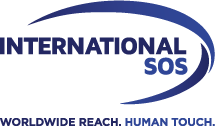Top 5 Emergencies Singapore Travellers Face during Chinese New Year
Singapore
Singapore travellers found to be most at risk from stomach and common flu, sprains, fractures, heart attacks, strokes and running out of meds.
SINGAPORE – This Chinese New Year, the old ‘health is wealth’ adage may take on greater significance for those skipping town and hopeful for a prosperous start to the Year of the Dragon. Data from International SOS, the leading global medical and security assistance company, shows that medical ailments top the list of reasons for Singapore travellers seeking emergency assistance during Chinese New Year.
The findings were obtained by ranking the type of cases handled by International SOS’ Singapore alarm centre during the Chinese New Year period over the past five years. The most common incidents stemmed from stomach flu and the common flu, followed by sprains and fractures, heart attacks and strokes – as well as running out of medication.
“While Chinese New Year is often a time when people take the opportunity to travel out of Singapore, just like any other peak travel period travellers may face difficulties on the road if they are unprepared and do not plan properly, “ says Dr David Teo, International SOS’ Medical Director for Singapore and Malaysia.
Dr Teo lists the top five emergencies for Singapore travellers over the Chinese New Year, and explains how you can stay safe and healthy while on the road during the holidays.
#1 Acute Gastroenteritis
#2 Upper Respiratory Tract Infection
Top on the list were Acute Gastroenteritis and Upper Respiratory Tract Infection, better known as the stomach flu and the common flu respectively. These two accounted for more than half of all cases recorded during the Chinese New Year period.
Dr Teo’s Advice:
Always wash your hands with soap before eating, or use a hand sanitizing gel/lotion.
Select food that is thoroughly cooked while fresh and served very hot, since heat usually kills bacteria.
Avoid undercooked or raw meat, fish or shellfish, even if they are the local delicacy. These are potentially a major source of infection.
Avoid food sold by street vendors or other potentially unhygienic establishments.
Only eat raw fruit you have peeled yourself.
Avoid food which is too spicy, too oily and those with much coconut milk especially if you are not used to such food. When travelling, you are usually on the move daily and may not be able to find toilets easily nor clean ones.
For Upper Respiratory Tract Infection (Common Flu)
Wash your hands frequently or use a hand sanitizing gel/lotion
When in cold countries, stay warm as far as possible and do not spend too much time outdoors, as strong winds can be too much for the young and elderly
For those with flu symptoms prior to travel, it is strongly recommended for the traveller to seek treatment (medications and medical clearance to travel) before embarking on the trip
#3 Musculoskeletal Ailments (Aches, Sprains and Bone Fractures)
Dr Teo’s Advice:
Most travellers generally experience body aches from cramped and long flights. In addition, many destinations are far apart and involve long coach journeys. It is important to wear loose clothes during long journeys and while on the plane, to take periodic short walks along the aisle.
Accidents do happen during travelling, especially if you understand that you are in an unfamiliar environment. There are cases of people who slip on the icy ground on their first step out of the coach bus on the first day of their tour, resulting in a bad sprain or fracture. Injury from a fall after slipping on a wet bathroom floor is also not uncommon.
Individuals who are new to skiing should be careful when trying out such activities at winter resorts. Sprains and fractures of limbs do result from such falls.
If you get injured during your travel, it is important to seek treatment early at appropriate medical facilities. Delays in treatment or treatment at inappropriate medical facilities may result in medical complications subsequently.
#4 Cardiovascular and Cerebrovascular Ailments (Heart Attack and Stroke)
Dr Teo’s Advice:
If you have any underlying medical condition, consult your doctor prior to any travel to ensure that you are certified fit to do so. It is important to ensure that your medical condition is stabilised prior to travel.
Even if you are certified fit to travel, there are limitations to the activities you can undertake in your travel. For example, someone with underlying heart disease should avoid strenuous activities such as trekking.
If you have serious underlying medical conditions, it is wise to avoid less developed countries that lack good medical facilities. A copy of a medical report and list of medications in your wallet would be useful.
If you need to travel to a less developed country, bring along sufficient medication as the required medication may not be readily available there.
#5 Running out of medication
Dr Teo’s Advice:
If you have any underlying medical condition, it is important that you see your doctor prior to any travel to ensure that you are certified fit to do so. If you rely on a medication for a chronic ailment, it is important to carry more than what you need for the period of travel, to cater for delays or changes to your flight schedule. It is recommended to physically carry two days of the medication through immigration, as your luggage may get lost or delayed.
Carry a list of all your medications and their scientific names (brand names differ from country to country), as well as extra doses and copies of each prescription. It is important to know that not every country carries the medication that you are taking. When travellers in Europe were grounded for days longer than anticipated due to the volcanic ash cloud, many ran low on critical medications and struggled to procure refills at unfamiliar local pharmacies.
Additional Travel Tips from International SOS
Wear and tear: Even a smooth flight can leave you with aches and fatigue. Add unanticipated hours on the tarmac, long waits in uncomfortable airport furniture and radical time zone changes and the body can suffer. In some cases, risks of travel-triggered conditions like deep vein thrombosis (a result of long periods of sitting) may be increased. Make sure you stay hydrated and well fed during travel, avoid alcohol, and move about the cabin as frequently as it is permitted. And if you suffer from a chronic condition such as high blood pressure or diabetes, consult your doctor before any extended air travel.
After you land: If you are travelling to a place known for street crime, arrange for ground transportation in advance of your arrival, with input from the hotel on which companies are reliable. Do this even if you plan to arrive in the day, as your flight may get delayed. Avoid spending more time than necessary in pick up and drop off zones in front of the airport, and at all times maintain a low profile by speaking discretely about your plans with companions, airport and hotel staff, wearing minimal jewellery, and staying away from bright colours and logos that would identify you as a tourist.
Traffic accidents: Vehicle crashes are the number one hazard for travellers. Be careful when driving after a long flight, especially in areas where you are unfamiliar. Drowsiness coupled with a strange highway — or even driving on the “wrong” side of the road — is a recipe for disaster.
Take a cab or have transportation arranged ahead of time. It should also be noted that traffic accidents are one of the most common reasons for a medical evacuation if the local medical facility is not suitable to treat your condition.
Nutrition on the go: It’s not always easy to maintain a healthy diet while travelling. There also may be a lack of healthy choices and unfamiliar food. It’s important to stay hydrated. Aim to drink 1.5 to 2 litres of water each day — more if you are in a hot and/or dry climate. Try to eat five to nine servings of fruit and vegetables per day to get the vitamins your body needs. Drink bottled water and eat only fruit you peel yourself when unfamiliar with health and sanitation issues in your destination country.
Sufficient cash, ensure travel documents are safe: For those travelling in crowded trains or buses, be aware of an associated increased risk of exposure to petty and opportunistic crime. Keep your travel documents, in particular, your passport safe, as embassies will be closed. Therefore, you may not be able to obtain a temporary passport till they open. This will delay your return trip. Carry sufficient cash as some places may not accept cashless payments. Do not put them in one location, spread them out because the banks will not be open for you to withdraw money when you need them most.
Notes to Editors
About the International SOS Group of Companies The International SOS Group of Companies is in the business of saving lives, protecting your global workforce from health and security threats. Wherever you are, we deliver customised health, security risk management and wellbeing solutions to fuel your growth and productivity. In the event of extreme weather, an epidemic or a security incident, we provide an immediate response providing peace of mind. Our innovative technology and medical and security expertise focus on prevention, offering real-time, actionable insights and on-the-ground quality delivery. We help protect your people, your organisation's reputation, as well as support your compliance reporting needs. By partnering with us, organisations can fulfil their Duty of Care responsibilities, while empowering business resilience, continuity and sustainability. Founded in 1985, the International SOS Group, headquartered in London & Singapore, is trusted by 12,000 organisations, including the majority of the Fortune 500, as well as mid-size enterprises, governments, educational institutions and NGOs. 12,000 multicultural medical, security and logistics experts stand with you to provide support & assistance from over 1,000 locations in 90 countries, 24/7, 365 days.
To protect your workforce, we are at your fingertips: www.internationalsos.com










